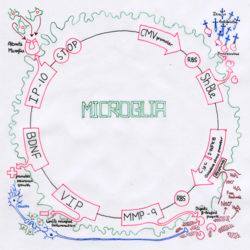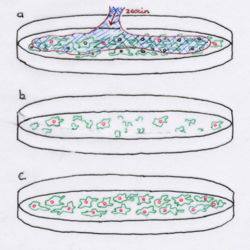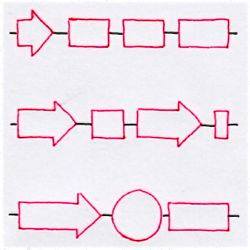Team:UCL/Project
From 2013.igem.org
| Line 198: | Line 198: | ||
<p class="abstract_title">Chassis</p> | <p class="abstract_title">Chassis</p> | ||
<p class="abstract_text"> | <p class="abstract_text"> | ||
| - | We conducted our experiments in three chassis, creating recombinant plasmids in E.coli before expressing them in HeLa and finally primary and immortalised human microglia lines. | + | We conducted our experiments in three chassis, creating recombinant plasmids in E.coli before expressing them in HeLa and finally primary and immortalised human microglia lines. Human brain cells have not been seen before in an iGEM project, with experiments in microglia coming as son as they arrive! |
</p> | </p> | ||
</a> | </a> | ||
Latest revision as of 03:22, 5 October 2013
IGEM: INTELLIGENTLY GENETICALLY ENGINEERED MICROGLIA
Synthetic Biology Fights Alzheimer's Disease
This year, the UCL iGEM team is taking a radical new step with synthetic biology. We intend to explore the potential application genetic engineering techniques on the brain, because it is the site of some of the most subtle, and many of the most devastating medical conditions. Alzheimer’s Disease is a neurodegenerative disease characterised by the loss of recent memory and intellectual functions. We have devised a genetic circuit for transfection into microglia, a novel chassis in which standard assembly has never been used, to boost their ability to break down senile plaques, which are associated with Alzheimer’s disease, as well as to support and protect endangered neurons from microglia-mediated neuroinflammation.
Click the abstracts below to read more.
 "
"










